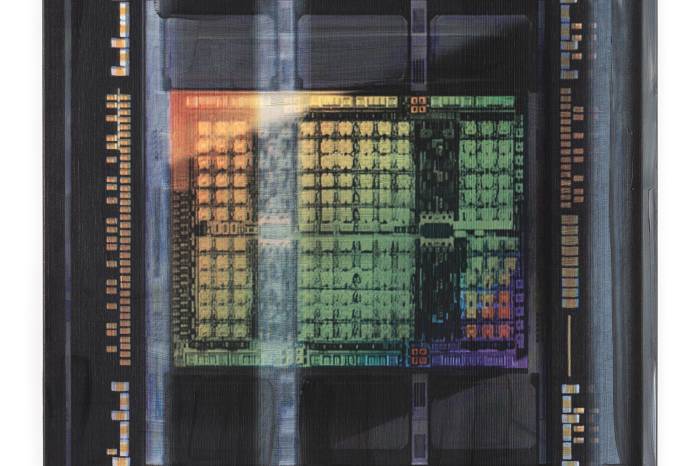Denny’s reverence for gaming culture has been evident in his artworks throughout the past
decade. In the 56th Venice Biennale (2015) his installation Secret Power monumentalized fantasy elements found in NSA slides, including reproductions of board games designed by a former NSA graphic designer. For Blockchain Future States (2016) at Petzel, Denny made sculptural editions of the board game Risk, translating logics of businesses from early crypto companies. In his exhibition The Founder’s Paradox (2017), Denny condensed the philosophical worlds around the entrepreneur and venture capitalist Peter Thiel into tabletop game sculptures.
For Dungeon, new artworks take two formats—paintings of dungeon maps and sculptures of dungeon artifacts. The installation references, appropriates and repurposes elements from Dungeons & Dragons (appearing in many iterations and formats since the 1970s), two tabletop games released by Milton Bradley: HeroQuest (1989) and a Hannah Montana edition of Mall Madness (2008), alongside more contemporary online games, forming a multi-era gaming dungeon survey, of sorts.
Following the intertwined narratives and affinities between the growth of gaming and big tech, the installation also includes sculptures made from Twitter office equipment liquidated by Elon Musk post-takeover, and a Game of Thrones t-shirt formerly owned and worn by his on/off partner, the musician and technologist Grimes. A replica of a sword from Lord of the Rings, based on a collectible hanging in the office of Palmer Luckey, has been cast by Denny in resin and coffee. Luckey is an entrepreneur and founder of Oculus VR (a headset startup acquired by Meta), and the defense start-up Anduril. Aptly named after the Lord of the Rings blade, Anduril Industries represents an important link between cyber and kinetic warfare, myth and reality: the growing space of “defense tech.”
The sculptures and paintings mix digital and analog technologies, including rough and ready 3D prints (some very crude and others more high resolution) and traditional media like oil on canvas overlaid with digital print. The painted maps and sculptural artifacts are rough, touched; forged together in unconventional combinations of surfaces and techniques. Translating the virtual into the tangible, Dungeon synthesizes a visceral impression of a world between realities.




















